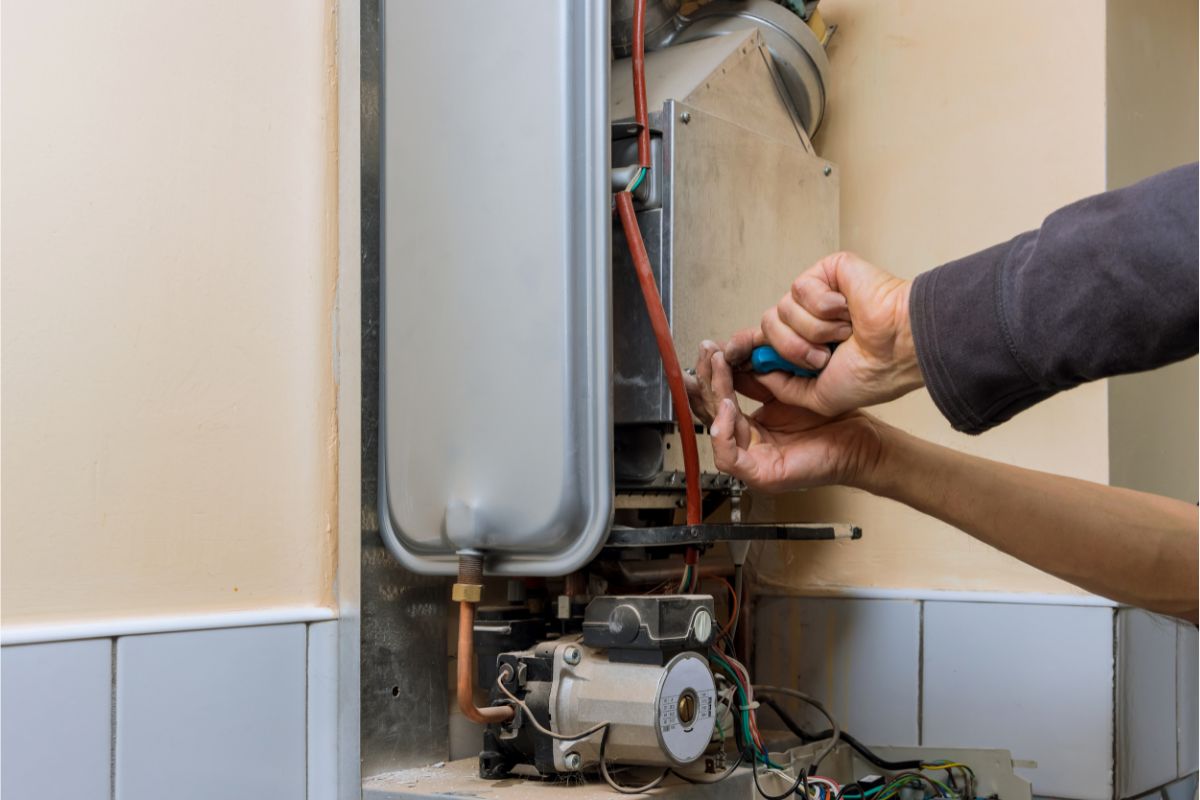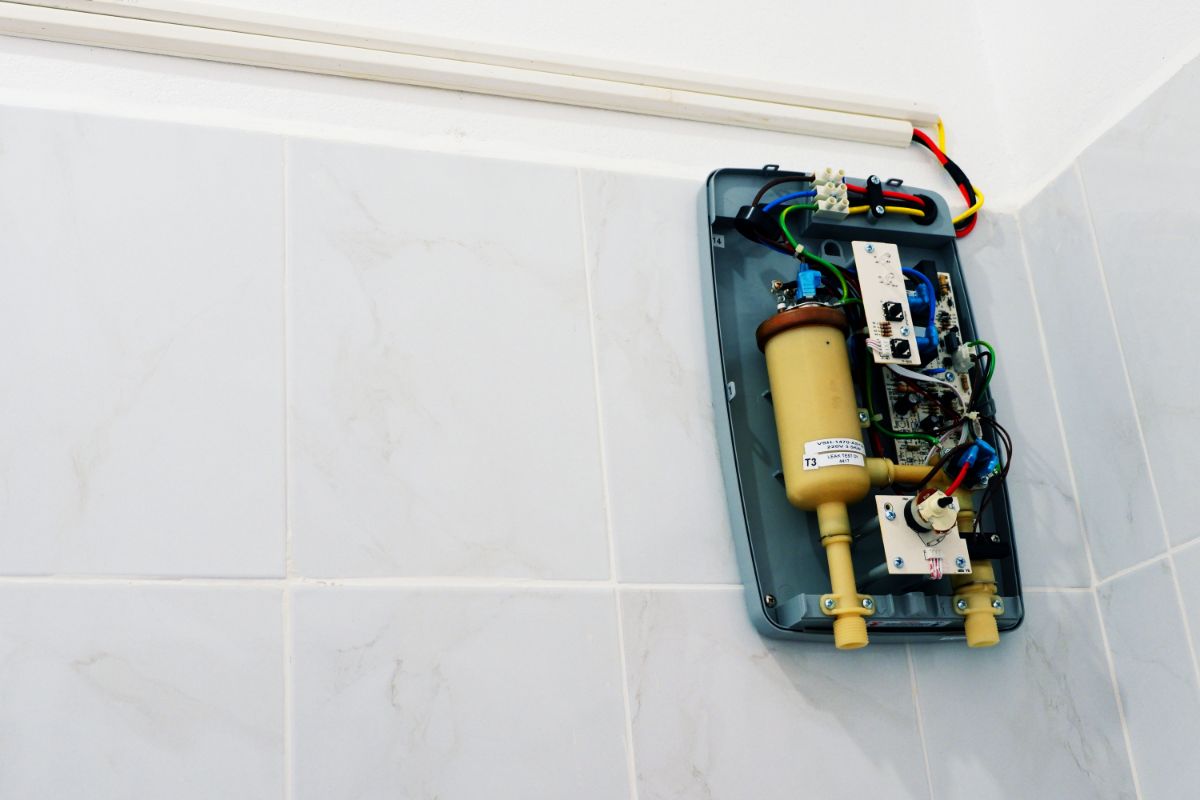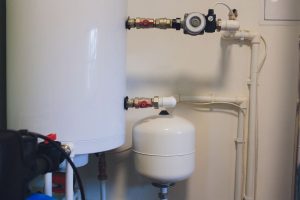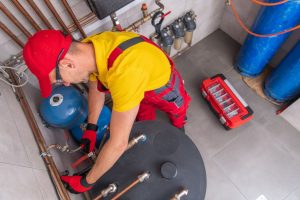Everything you need to know about new boiler installation costs in Australia and how to get the best deal on upgrading your system.
Table of Contents
Replacing your old, inefficient boiler can save money long-term but carries a hefty upfront cost. With installation ranging from $2000-$7000, choosing the right system and finding rebates is key to keeping your bill affordable. This guide explores the costs of different boiler types, factors impacting install price, and tips to mitigate expenses so you can make the switch without breaking the bank.
Types of Boilers and Their Costs
When it comes time to replace your old, inefficient boiler, one of the first considerations is the type of boiler best suited to your needs. With the range of boiler systems available in Australia today, it can be confusing to figure out which is the right fit for your home or business. Understanding the different types of boilers and their typical installation costs provides a solid foundation before diving into the specifics.
Electric Boiler Installation
Electric boilers operate by heating water through electric heating elements, providing an efficient and low-maintenance alternative to fossil fuel boilers. Installation costs for electric boilers in Australia generally range from $2,000 to $5,000 depending on the boiler size and brand.
Several key factors contribute to the installation cost of an electric boiler system. The boiler’s power rating and tank capacity determine the size of unit needed to adequately meet your hot water requirements. More powerful boilers with larger tanks come at a higher price. Going for a reputable brand like Rheem, Bosch or Dux often costs more upfront but delivers better performance and longevity.
Where you live also impacts installation costs. Labour and materials tend to be more expensive in remote regional areas compared to major cities. Complexity of the install is another consideration – replacing an existing boiler is simpler than installing a completely new system. Your electrician may need to upgrade wiring and circuits to handle the load of an electric boiler, adding to the overall cost.
While electric boilers generally have higher upfront installation costs, they can save money in the long run through lower operating costs. Their higher efficiency compared to gas boilers means less energy wasted and smaller energy bills over time.
Gas Boiler Installation
Gas boilers remain the most popular option for domestic hot water and central heating in Australian homes. Installation costs typically range from $2,500 to $5,000 depending on the unit’s size and features.
As with electric boilers, the power output and hot water storage volume determine the size and price of the gas boiler unit. More complex condensing boilers cost more to install but offer superior energy efficiency compared to conventional non-condensing boilers. Premium brands like Rinnai and Rheem fetch a higher purchase price that is often offset by better reliability and performance.
Your location is another major cost factor for gas boiler installation. Plumbers charge more for labour, materials and permit fees in remote areas outside of major cities. Complex installations requiring substantial gas line work, flue modifications or electrical upgrades add to the total price. Replacing an existing gas boiler is generally cheaper than installing a brand new system.
While gas boilers cost more to operate long-term than electric options, their lower upfront installation costs make them a popular choice. Regular servicing is critical to keep gas boilers running safely and efficiently.

Solar Hot Water System Installation
Solar hot water systems harness free renewable energy from the sun to heat water and reduce your energy bills. Installation costs for a solar hot water system in Australia typically fall between $3,000 to $7,000 depending on the system size, components and location.
The number of solar collectors and the size of your storage tank determine how much the system can heat. More panels and larger tanks cost more upfront but deliver greater hot water capacity. Split systems with separate roof-mounted collectors and ground tanks are generally more expensive to install than compact close-coupled units.
Evacuated tube solar collectors are the most efficient but also the most expensive. Quality components from reputable brands like Sanden, Edwards and Solahart add to the system cost but result in better performance. Complex installations involving roof modifications or excavations drive the price up further.
Regional areas with limited solar installers often command higher labour rates, permit fees and transport costs for materials – easily tacking on $1,000 or more to the total bill. However, these premium costs are usually recouped over time through substantial energy savings from harnessing the sun’s free heat.
While carrying higher upfront costs compared to gas and electric boilers, solar systems save significantly on hot water bills in the long run with proper maintenance. For the environmentally-conscious homeowner, the renewable energy benefits may override the steeper initial investment.
Factors Affecting Installation Cost
When budgeting for a new boiler installation, it’s important to understand what factors impact the overall cost. A number of variables influence the total price tag – from the technical specifications of the unit itself to the complexity of integrating it into your existing systems.
Efficiency and Size
The efficiency and size of the boiler unit are two key factors affecting installation cost. More energy efficient boilers generally have a higher upfront cost. However, their superior performance results in lower operating costs over time through reduced energy consumption. Larger boilers with bigger heating capacity also come at a greater initial price to match their higher hot water and heating output.
Modern gas condensing boilers offer exceptional efficiency of over 90%, but fetch a premium price compared to standard models in the 80-85% range. Bigger homes may require a 30kW output boiler costing $4,000+, while a small unit around 12kW can be installed for under $2,000. However, undersizing your boiler’s heating capacity to save money often results in discomfort and higher energy bills.
Boiler Type and Compatibility
The type of boiler technology you choose, and how compatible it is with your existing systems, will impact installation cost. Condensing gas boilers need proper flueing to work safely and efficiently. Switching from a gas to electric boiler may require upgrading electrical wiring and circuits to handle the increased load.
In some cases, it’s cheaper to replace an old boiler with a similar model that matches your current setup. Opting for an unfamiliar boiler technology like solar thermal or heat pumps often incurs added costs for new ancillary systems and modifications to pipework and radiators. However, the long term savings may justify the initial investment.
Installation Complexity
The complexity of installation and any modifications needed to integrate the new boiler will affect labour time and cost. Simple swaps of gas boilers in existing locations can often be completed in a day, while more complex projects take longer. Difficult access requiring demolitions or moving the boiler location adds expenses.
Upgrading old legacy heating systems to work with modern boilers may require replacing radiators, pipes and controls – adding thousands to the total bill. Any roofing, gas line or flue modifications needed to accommodate the new boiler also drive up costs. However, investing in a clean and efficient install saves money over time through optimized performance.
The expertise of your installer is also a factor. Reputable tradespeople with extensive boiler installation experience will complete the job faster and ensure a quality, long-lasting end result. Although their labour fees are generally higher, you get what you pay for.

Ways to Mitigate Installation Costs
With boiler installation often costing thousands of dollars, it pays to explore ways to reduce the price tag where possible. Making informed choices about your boiler system, shopping around for the best deals, and timing your installation strategically can all help minimise the financial impact.
Choosing the Right Boiler
Selecting the most suitable boiler type and size for your home is crucial for cost-effective installation. Overpowered, overpriced boilers result in energy waste and inflated electricity bills. Similarly, undersized units can’t meet your household’s hot water and heating needs efficiently.
Take into account factors like your home’s size, hot water usage, number of bathrooms, and existing pipework when choosing a boiler. Condensing gas boilers offer the best value for most homes with their combination of lower upfront cost and high efficiency. Heat pumps are a great option in warm climates, providing both heating and cooling from one system.
If your budget is tight, look for good value medium-tier brands rather than very cheap or premium models. Investing a little more upfront in an energy efficient unit often pays off in the long run too. Getting the boiler selection right from the start saves money down the track.
Comparing Quotes
Shopping around and comparing installation quotes from different suppliers is key to finding the best deal. Quoted prices can vary hugely between companies, so it pays to seek out multiple quotes.
Get quotes from a mix of small and large suppliers. Well established companies often offer reliability and experience, while smaller operators provide more competitive pricing. Seek out specialists in your particular boiler type as their expertise can result in cost savings.
When comparing quotes, look beyond just the bottom line figure. Consider what’s included in the quote – parts, labour, any modifications or upgrades required. Opting for some DIY elements yourself like painting and minor repairs can also reduce the total installer fees.
Timing the Installation
The timing of your boiler installation can impact the price you pay. Scheduling the work during warmer months when demand is lower means you’re more likely to receive discounts or other incentives from installers eager for business.
Avoid cold winter months when demand spikes and plumbers are stretched – you’ll pay a premium. Likewise beware of peak holiday periods when tradespeople scale back operations and charge higher rates if available.
Ask your installer about off-peak promotions they may offer during slower seasons. Some also provide better pricing for jobs booked well in advance during downtime periods. Scheduling annual servicing of your boiler in spring or autumn can be cheaper too.
With some strategic planning around choosing the right boiler, comparing supplier quotes, and timing the installation in your favour, you can mitigate the overall installation costs substantially. A small investment in time and research upfront pays big dividends through cost-effective boiler installation and operation.
Getting Quotes and Choosing an Installer
Requesting Multiple Quotes
Don’t settle for just one or two quotes – contact at least five installers to get an accurate idea of price range and services offered. Quoted prices can vary wildly, so casting your net wide saves money.
Provide the same job specifications to each company and compare like for like quotes. Consider not just the quoted price but what’s included – parts, labour, modifications required, warranties etc. Some firms offer attractive prices but cut corners or have hidden costs.
Beyond pricing, compare the services each installer offers. Look for extras like certified gas work, electrical upgrades, removal of old boiler unit, and post-installation servicing. Opting for a company offering a complete end-to-end service can be worth paying a little more.
Evaluating Installer Credentials
While an attractive quote is appealing, it must be backed by proven credentials and experience. Check licences and qualifications of the company and individual installer. Membership of a professional body like the Institute of Plumbing and Heating signals established expertise.
Look for demonstrated experience installing your specific boiler make and model. Longevity in business often translates to higher quality workmanship and fewer problems down the track. Be wary of “flash in the pan” operators with limited experience.
Thoroughly check reviews and feedback from past clients. Reputable firms should be able to provide references from satisfied long-term customers. Avoid companies with a trail of complaints about poor work quality and evasive warranty service.
Negotiating the Price
Once you’ve identified a quality installer with satisfactory credentials, don’t be afraid to negotiate the price. Most builders include a profit margin, so reasonable haggling can often save you 5-10% off the initial quoted cost.
Explain that you have other competitive quotes and ask if they can improve the price. Request they throw in additional services like removal of the old boiler or a free first-year service. Bundle the boiler installation with upgrades like new controllers for further discounts.
Pitch booking well in advance during their downtime for the best price, and pay upfront rather than financing. Demonstrating you’ve done your homework on pricing gives you leverage to negotiate the fairest deal.
With diligence and negotiation skills, you can secure the services of a top-notch boiler installation company for an affordable price that fits within your budget. Never opt for the cheapest quote at the expense of quality or safety.
Government Rebates and Incentives
Installing a new energy efficient boiler can be a costly exercise, but thankfully Australian governments offer rebates and incentives to make it more affordable. Understanding the eligibility criteria and application process allows homeowners to take advantage of these financial assistance programs.
Eligibility Criteria
The federal government provides rebates towards installing low-emission gas, electric and solar water heaters under its Home Heating and Cooling Upgrade program. To qualify, you must meet requirements like using a licensed installer and selecting an approved model rated over 4 stars.
State government rebates also exist in certain areas. For example, in NSW the Gas Rebate Program offers $500 for installing a natural gas heating system in a home without existing gas. Eligibility often depends on location, heating requirements, household income and environmental ratings of the system.
For solar hot water systems, federal rebates of up to $1000 are accessible subject to factors like collector panel size, electric booster limits, and installation by Clean Energy Council approved suppliers.
Specific Rebate Programs
Specific regions may offer their own boiler upgrade rebate programs. For instance, the Victorian Healthy Homes Rebate provides over $2000 off the cost of installing an efficient gas heater in selected suburbs.
The NSW Gas Regional Program allows up to $1200 rebate on gas heating installation in identified regional zones. Check if your local council or utility offers subsidised boiler upgrades before installing to take advantage.
The key is selecting an approved high efficiency system meeting minimum criteria, and using a licensed technician. Retrofitting insulation upgrades at the same time can also increase rebates in some schemes.
How to Apply for Rebates and Incentives
Application processes vary between programs but generally involve submitting online or paper forms with supporting quotes and documentation. Your chosen installer will often handle the application on your behalf as part of their service.
Provide required details like proof of home ownership, family income within thresholds if applicable, and compliance certificates from your qualified installer. Submit energy efficiency ratings, gas work certification and other relevant paperwork.
Once approved, the rebate is either applied to your final invoice price by the installer, or provided to you directly for reimbursement. Make sure to claim within specified time limits and follow up on application status.
With the potential to receive over $1000 back through government boiler rebates and incentives, researching the options relevant to your situation can make a big difference to affordability.
Related Hot Water Systems Resources

How Much Does New Boiler Installation Cost?
Everything you need to know about new boiler installation costs in Australia and how to get the best deal on upgrading your system.

How Much Does a Gas Hot Water System Installation Cost?
Table of Contents If you are thinking about installing a hot water system in your household – you must be wondering how much a gas hot water system installation cost.

How Much Does Hot Water System Installation Cost?
Table of Contents How Much Does Hot Water System Installation Cost? Roof gutter cleaning typically costs between $150 and $550, with prices influenced by house size, accessibility, and the amount


